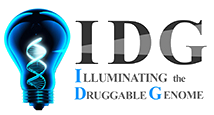Drug results: 33
| isoleucine | An essential branched-chain aliphatic amino acid found in many proteins. It is an isomer of LEUCINE. It is important in hemoglobin synthesis and regulation of blood sugar and energy levels. |
|
| leucine | An essential branched-chain amino acid important for hemoglobin formation. |
|
| arginine | An essential amino acid that is physiologically active in the L-form. |
|
| methionine | A sulfur-containing essential L-amino acid that is important in many body functions. |
|
| proline | A non-essential amino acid that is synthesized from GLUTAMIC ACID. It is an essential component of COLLAGEN and is important for proper functioning of joints and tendons. |
|
| serine | A non-essential amino acid occurring in natural form as the L-isomer. It is synthesized from GLYCINE or THREONINE. It is involved in the biosynthesis of PURINES; PYRIMIDINES; and other amino acids. |
|
| glycine | A non-essential amino acid. It is found primarily in gelatin and silk fibroin and used therapeutically as a nutrient. It is also a fast inhibitory neurotransmitter. |
|
| threonine | An essential amino acid occurring naturally in the L-form, which is the active form. It is found in eggs, milk, gelatin, and other proteins. |
|
| alanine | A non-essential amino acid that occurs in high levels in its free state in plasma. It is produced from pyruvate by transamination. It is involved in sugar and acid metabolism, increases IMMUNITY, and provides energy for muscle tissue, BRAIN, and the CENTRAL NERVOUS SYSTEM. |
|
| valine | A branched-chain essential amino acid that has stimulant activity. It promotes muscle growth and tissue repair. It is a precursor in the penicillin biosynthetic pathway. |
|
| histidine | An essential amino acid that is required for the production of HISTAMINE. |
|
| tryptophan | An essential amino acid that is necessary for normal growth in infants and for NITROGEN balance in adults. It is a precursor of INDOLE ALKALOIDS in plants. It is a precursor of SEROTONIN (hence its use as an antidepressant and sleep aid). It can be a precursor to NIACIN, albeit inefficiently, in mammals. |
|
| phenylalanine | An essential aromatic amino acid that is a precursor of MELANIN; DOPAMINE; noradrenalin (NOREPINEPHRINE), and THYROXINE. |
|
| tyrosine | A non-essential amino acid. In animals it is synthesized from PHENYLALANINE. It is also the precursor of EPINEPHRINE; THYROID HORMONES; and melanin. |
|
| sodium acetate | The trihydrate sodium salt of acetic acid, which is used as a source of sodium ions in solutions for dialysis and as a systemic and urinary alkalizer, diuretic, and expectorant. | |
| calcium chloride | A salt used to replenish calcium levels, as an acid-producing diuretic, and as an antidote for magnesium poisoning. | |
| sodium chloride | A ubiquitous sodium salt that is commonly used to season food. | |
| magnesium chloride | Magnesium chloride. An inorganic compound consisting of one magnesium and two chloride ions. The compound is used in medicine as a source of magnesium ions, which are essential for many cellular activities. It has also been used as a cathartic and in alloys. | |
| potassium phosphate, dibasic | ||
| lysine | An essential amino acid. It is often added to animal feed. |
|
| aspartic acid | One of the non-essential amino acids commonly occurring in the L-form. It is found in animals and plants, especially in sugar cane and sugar beets. It may be a neurotransmitter. |
|
| glutamic acid | A non-essential amino acid naturally occurring in the L-form. Glutamic acid is the most common excitatory neurotransmitter in the CENTRAL NERVOUS SYSTEM. |
|
| lysine acetate | ||
| taurine | A conditionally essential nutrient, important during mammalian development. It is present in milk but is isolated mostly from ox bile and strongly conjugates bile acids. |
|
| cysteine | A thiol-containing non-essential amino acid that is oxidized to form CYSTINE. |
|
| potassium chloride | A white crystal or crystalline powder used in BUFFERS; FERTILIZERS; and EXPLOSIVES. It can be used to replenish ELECTROLYTES and restore WATER-ELECTROLYTE BALANCE in treating HYPOKALEMIA. | |
| sodium glycerophosphate | ||
| magnesium sulfate | A small colorless crystal used as an anticonvulsant, a cathartic, and an electrolyte replenisher in the treatment of pre-eclampsia and eclampsia. It causes direct inhibition of action potentials in myometrial muscle cells. Excitation and contraction are uncoupled, which decreases the frequency and force of contractions. (From AMA Drug Evaluations Annual, 1992, p1083) | |
| glucose | A primary source of energy for living organisms. It is naturally occurring and is found in fruits and other parts of plants in its free state. It is used therapeutically in fluid and nutrient replacement. |
|
| phosphoric acid | concise etchant is 37% H3PO4 |
|
| magnesium acetate | ||
| calcium acetate | a principal compound used as phosphate binders in patients with chronic renal failure; used like sevelamer | |
| glycerol | A trihydroxy sugar alcohol that is an intermediate in carbohydrate and lipid metabolism. It is used as a solvent, emollient, pharmaceutical agent, or sweetening agent. |
|



